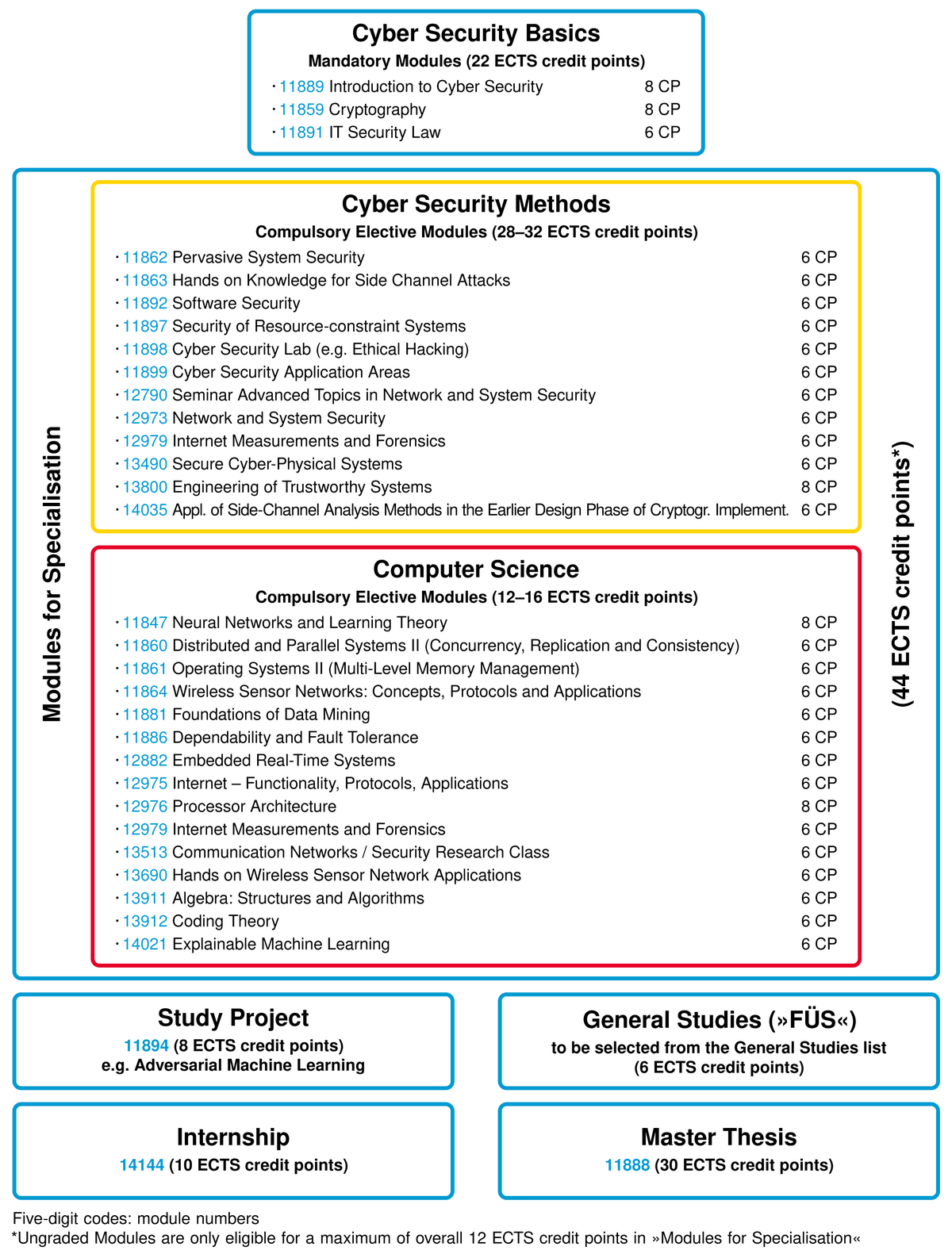Programme Content and Module Overview
Cyber Security is a scientific programme, in which you learn to understand how the Security Building Blocks work and what are their limits (including mathematics behind cryptography). Based on this, you gain knowledge needed to design and develop new algorithms/approaches against specific cyber threats as well as critically evaluate their limits. The programme is not about how to configure a firewall or to run a pen-testing tool, it is about academic content with in-depth understanding of underlying techniques and principles.
The international master's programme Cyber Security consists of four semesters with 30 ECTS credit points each. The programme covers all relevant aspects of cyber security. Based on our courses you will be capable to master all relevant current and forthcoming IT security issues.
The curriculum distinguishes between basic studies and specialized studies, supplemented by general studies, industrial internship, and the master thesis.
- The basic studies "Cyber Security Basics" comprise 22 ECTS credit points and consist of mandatory modules.
- The specialized studies comprise 54 ECTS credit points and are subdivided in two compulsory elective module areas (46 ECTS credit points) and the study project (8 ECTS credit points).
- Within the scope of the compulsory elective studies "Cyber Security Methods", modules with a minimum of 28 ECTS credit points must be selected.
- Modules of at least 12 ECTS credit points must be chosen from the compulsory elective studies "Computer Science".
- The internship aims at implementing the subject-related and methodical knowledge obtained in the programme in an industrial environment. It serves as feedback between industrial practice, on the one hand, and research and teaching, on the other hand.
The following overview contains all modules offered in the programme. For further details please check the module catalogue.


